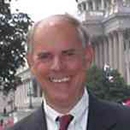Academic Editors
The following people constitute the Editorial Board of Academic Editors for PeerJ. These active academics are the Editors who seek peer reviewers, evaluate their responses, and make editorial decisions on each submission to the journal. Learn more about becoming an Editor.
Dorothee Staiger
1978-1984 Study of Biochemistry at Tuebingen University and LMU Munich
1981 Short term visit Dept. of Biochemistry, University of Cambridge
1984-1985 Max-Planck-Institute for Biochemistry, Martinsried, Diploma
1985-1989 Max-Planck-Institute for Plant Breeding, Cologne, PhD with J. Schell
1990-1996 Institute for Plant Science, ETH Zurich, Assistentin
1996-2002 Institute for Plant Science, ETH Zürich, Oberassistentin
2002 Full Professor Bielefeld University

Mitchell S Stark
For the past 20 years I have been actively working in the field of melanoma and naevi genomics. I have worked and performed my PhD candidature based at the QIMR Berghofer Medical Research Institute (1999-2015) and in 2015 I relocated as a Research Fellow in the Dermatology Research Centre, The University of Queensland Diamantina Institute. Over this time I have been working towards understanding the aetiology of melanoma, studying gene dysregulation during tumour progression along with predisposition to melanoma in families with high risk for melanoma development. My research group (genomics and miRNA biomarker discovery) based within the Dermatology Research Centre (UQDI) is currently engaged in miRNA biomarker and genomics research for early detection in melanoma, skin cancer (SCC), as well as non-small cell lung cancer.

Lesley A Stark
Lesley Stark received a B.Sc (1st) from the University of Aberdeen (1990). She carried out her PhD with C. Bird at the University of Edinburgh and her first postdoc with RT Hay at the University of St Andrews. She moved back to the University of Edinburgh in 1997 to the lab of MG Dunlop. In 2002 was awarded a CRF fellowship to investigate NF-kB and aspirin chemoprevention. She was appointed as a lecturer/PI at the University of Edinburgh in 2005, a senior lecturer in 2008 then a reader in 2012.

Eike Staub
TU Braunschweig & Uni Glasgow. Metagen Gesellschaft für Genomforschung mbH.
Max Planck Institute for Molecular Genetics. Altana Pharma AG. And currently Merck Healthcare KGaA
My speciality areas are Computational Biology, Systems Biology, Oncogenomics, Drug Target Identification, Biomarker Research.

Kaspar Staub
I am an epidemiologist and historian interested in anthropometry, body height, obesity and neonatal health on the one hand, and historical epidemiology (past and present epidemics and pandemics, etc.) on the other. I am leading a research group at the University of Zurich at the Institute of Evolutionary Medicine.

Andreas Stavropoulos
After having completed his dental technology education, Andrea Stavropoulos studied dentistry in Heidelberg, Germany, Thessaloniki and Athens, Greece. After a few years of work in private practice limited to periodontics and implant dentistry, he joined the Department of Periodontology, School of Dentistry, Aarhus University, Denmark, where he received his postgraduate training. Andreas Stavropoulos received his Ph.D. in 2002 and his dr.odont. degree in 2011 from Aarhus University. In 2012, Andreas Stavropoulos joined Malmö University as the Professor and Chair of the Department of Periodontology. Andreas Stavropoulos has received several awards for his research, including the Anthony Rizzo Young Investigator Award from the Periodontal Research Group (PRG) of the International Association of Dental Research (IADR) in 2006, the 1st Basic Research Prize of the European Association of Osseointegration in 2011, the Straumann Award in Regenerative Periodontal Medicine, conferred by the PRG of the IADR. Andreas Stavropoulos has authored several publications in international peer reviewed journals and book chapters, and he is member of the Editorial Boards of Journal of Clinical Periodontology, Clinical Oral Implants Research, Quintessence International, and PeerJ. Andreas Stavropoulos is a member of the Undergraduate Committee of the EFP, the Education Committee of the EAO, Fellow of the International Team for Implantology (ITI), and he is currently the Councilor for PRG at IADR.

Kamil Steczkiewicz
Kamil Steczkiewicz is Assistant Professor in the Department of Bioinformatics, Institute of Biochemistry and Biophysics, Polish Academy of Sciences. He is interested in widely understood protein structure and function prediction. Dr. Steczkiewicz is head of a project on the classification of all known peptidases.

Robert G Steen
Director of the Biopolymers NextGen Sequencing Facility, Department of Genetics, Harvard Medical School.

Clara Stefen
PhD in Biology in Bonn, Postdoc in Berkeley, Museum of Paleontology. Currently Curator of Senckenberg Naturhistorische Sammlungen Dresden.

John J. Stegeman
Sr. Scientist and former Head of Biology and Watson Chair, Woods Hole Oceanographic Institution. Director, NSF/NIH Woods Hole Center for Oceans and Human Health. Editorial Boards of several journals, former Editor-in-Chief, Aquatic Toxicology. Honorary Doctorate from Goteborg University.

Stefan Steiniger
Stefan Steiniger is a Professor at the School of Construction and Transport Engineering at Pontificia Universidad Catolica de Valparaiso, Chile, and in charge of the spatial data infrastructure/observatory of the Chilean Centre for Urban Sustainable Development (CEDEUS). With a background in automated geo-visualization, spatial data analysis, geodesy and geo-information technologies in general he has a wide interest in developing free & open source GIS tools and their applications in diverse fields including cartography, wildlife ecology, landscape ecology, urban planning, and transportation. His latest research focuses on (i) developing web platforms for urban accessibility analysis - such as CiudadCaminable.com and Walkability.App, (ii) processes and tools for the calculation (Python and R), visualisation (Dashboards) and management of sustainable city indicators and their data, as well as (iii) the development of scenario modelling tools for urban planning.


